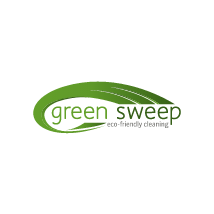“Going green” in the cleaning of your home or business seems like a simple proposition. However, it is increasingly difficult to distinguish which companies offer products and services that truly are environmentally-friendly as “green washing” becomes more prevalent with many companies trying to win over your business. “Green washers” know the right words to say and often have appealing marketing materials, but are they using truly green products? Operating in environmentally sound ways? With the deluge of new products and services, how can you make the best choice for your family or colleagues?
Product choice: There you are, standing in the cleaning aisle looking at an ever-expanding wall of “green” products. What to buy? A few helpful hints:
Products with a Green Seal or Ecologo certification have passed a series of tests for sustainability (I still recommend looking at the ingredients). Beware of other “certifications,” a marketing ploy, that is increasingly employed. One caveat is that there are some great green products out there that have no official certification as they are expensive to attain. If a product does not, you should be able to read and to understand their product ingredients.
There are over 80,000 synthetic chemicals registered for use today with the US Environmental Protection Agency. How many of these are actually being used in our everyday cleaning supplies is unknown due to the lack of accountability in labeling. Many of their health impacts are also unknown.
A few of the many chemicals to avoid because they are known for negative health and environmental impacts are ammonia, bleach (sodium choloride ), 2-butoxyethanol/ Ethylene glycol butyl ether, petroleum/petrolatum, and formaldehyde. If a company does not disclose the ingredients or the list is as long as this bullet point, do not buy them.
All products should distinctly be marked “Phosphate Free.”
Products labeled “all natural” and “biodegradable” oftentimes are. But again, check the ingredients.
Look for products that use recycled cartons or materials to carry their products. Also, look for products that are concentrates, meaning that you can dilute them with water.
The key to finding the right eco-friendly products is to be willing to dig a little deeper. Or, if time allows, you can make your own with vinegar, water, and baking soda (recipes forthcoming). Many traditional household cleansers with brand names trusted for generations contain ingredients that cause cancer, birth defects, and respiratory ailments …and they are bad for the earth: our air, our water, in short, our future.
Service choice: Spend another beautiful Saturday cleaning your house? No! Here are some questions (and some answers) to help you assess a green cleaning company.
Q1. What products do you use? Are they green seal certified?
We use products that are only green seal or ecologo certified (good answer).
Or
Some of the products we use do have these certifications as they are smaller companies who can’t afford them. However, we have thoroughly researched the ingredients in the products we use and they are all safe for you and the environment. I would be happy to go over these with you.
Q2. If I want you to use a little bleach in my bathroom, will you?
No! Bleach is not necessary in household cleaning and only under certain circumstances should it be used in commercial settings. We only use products that we have researched and know to be safe for you and the environment.
Q3. Do you use paper goods when cleaning?
No. Part of our promise as an eco-friendly company is to not create trash as we clean. We use cloths that can be washed and reused.
Q4. What kind of vacuums do you use?
We use vacuums with hepa filtration (brand is of secondary importantance). Hepa filters trap 99% of dust, rather than blowing it right back into the room. This enhances air quality.
Q5. What makes you a green as a cleaning company?
What makes us green is the products that we use, the methodology we implement, and the equipment we employ.
Q6. Do you use disinfectants?
We use botanically-based disinfectants that have been approved by the EPA in commercial settings. We can use them in your home by request. These are new products proven to kill germs. They will not compromise your health.
Q7. Can you provide me with references?
Of course!

